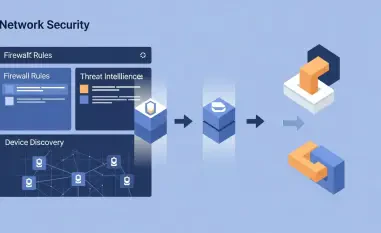In an era where cyber espionage has become a critical tool for nation-states to gain strategic advantages, a shadowy group known as Phantom Taurus has emerged as a formidable player on the global stage. This Chinese state-sponsored hacking entity, active for over two years, has honed its focus on government and telecommunications organizations, striking at the heart of sensitive communications and critical infrastructure. Operating with a blend of sophisticated malware and covert tactics, Phantom Taurus has caught the attention of cybersecurity experts due to its relentless pursuit of intelligence aligned with geopolitical interests. From ministries of foreign affairs to key embassies across Africa, the Middle East, and Asia, the group’s operations reveal a calculated approach to espionage. The scale and precision of their attacks underscore a pressing challenge for international entities striving to safeguard their digital assets against such persistent threats. This exploration delves into the mechanisms behind their campaigns, shedding light on the tools and strategies that define their impact.
Unveiling the Tactical Arsenal
Phantom Taurus distinguishes itself through an innovative blend of proprietary and conventional cyber tools designed to penetrate and persist within targeted networks. At the forefront of their arsenal is the Net-Star malware suite, a recently deployed set of web-based backdoors targeting Internet Information Services (IIS) web servers. This suite includes IIServerCore, a fileless backdoor operating entirely in memory to evade detection, alongside two variants of AssemblyExecuter, which are .NET malware loaders built for dynamic code execution. These tools allow the group to bypass security mechanisms such as the Windows Antimalware Scan Interface (AMSI), execute payloads, and maintain encrypted communication with command-and-control (C&C) servers. Beyond bespoke malware, Phantom Taurus also leverages familiar utilities like China Chopper and Impacket, demonstrating a pragmatic approach to achieving their objectives with both custom and widely available resources.
The tactical sophistication of Phantom Taurus extends beyond malware to encompass a range of covert techniques that ensure long-term access to compromised systems. Their ability to manage web shells and maintain persistence reflects a deep understanding of network vulnerabilities and defensive blind spots. Unlike many other Chinese advanced persistent threats (APTs), this group often deviates from standard operating procedures, employing unique tactics, techniques, and procedures (TTPs) that complicate attribution and detection. By blending shared operational infrastructure with distinctive methods, they create a challenging puzzle for cybersecurity teams tasked with identifying and mitigating their presence. The adaptability of their approach, particularly in tailoring attacks to specific environments, highlights a level of strategic planning that amplifies the threat they pose to global organizations operating in sensitive sectors.
Strategic Focus on High-Value Targets
The espionage campaigns orchestrated by Phantom Taurus are meticulously aligned with specific geopolitical and economic interests, often targeting entities that hold critical intelligence. Government bodies, particularly foreign affairs ministries and embassies, are prime targets, as are telecommunications organizations that manage vast troves of sensitive data. By infiltrating email servers, the group extracts confidential communications that can inform diplomatic strategies or reveal defense-related insights. Additionally, direct access to databases allows them to harvest information that could influence regional security dynamics. The timing of these operations frequently coincides with significant global events, suggesting a deliberate effort to capitalize on moments of heightened political tension or strategic importance for maximum impact.
Beyond the immediate targets, the broader implications of Phantom Taurus’ activities point to a pattern of state-backed cyber operations aimed at destabilizing political and economic landscapes. Their focus on critical infrastructure within regions like Africa, the Middle East, and Asia indicates a calculated intent to gather intelligence that serves long-term national objectives. This strategic targeting is not random but reflects a deep understanding of global power structures and the value of information in shaping international relations. Cybersecurity analysts have noted that the persistence and precision of these attacks pose a significant risk to the integrity of governmental operations, urging a reevaluation of defensive postures. As Phantom Taurus continues to refine its methods, the challenge for targeted organizations lies in anticipating and countering an adversary that operates with such focused intent.
Evolving Threats and Necessary Defenses
Reflecting on the sustained operations of Phantom Taurus, it becomes evident that their ability to innovate with tools like the Net-Star malware suite marks a significant escalation in the realm of state-sponsored cyber threats. Their knack for blending traditional hacking tools with bespoke solutions enables them to maintain stealth and persistence across compromised systems for extended periods. The strategic alignment of their attacks with key geopolitical moments further amplifies the damage inflicted on targeted government and telecommunications entities. Looking back, the intricate balance between shared infrastructure with other Chinese APTs and unique TTPs sets Phantom Taurus apart as a particularly insidious adversary in the digital domain.
Moving forward, organizations must prioritize robust cybersecurity frameworks to counter such evolving threats. Investing in advanced threat detection systems capable of identifying fileless malware and dynamic code execution is essential. Additionally, regular audits of web servers and email systems can help uncover vulnerabilities before they are exploited. International cooperation in sharing threat intelligence could also play a pivotal role in building collective defenses against groups like Phantom Taurus. Strengthening employee training to recognize phishing attempts and other entry points for malware remains a critical step. Ultimately, staying ahead of sophisticated state-backed actors demands a proactive stance, ensuring that defenses evolve as rapidly as the threats themselves.













